Several authors have been asked to prepare background papers as a contribution to the discussions of the core group of the Debt Relief for Green and Inclusive Recovery (DRGR) project. They reflect the position of the respective authors, not necessarily the project.
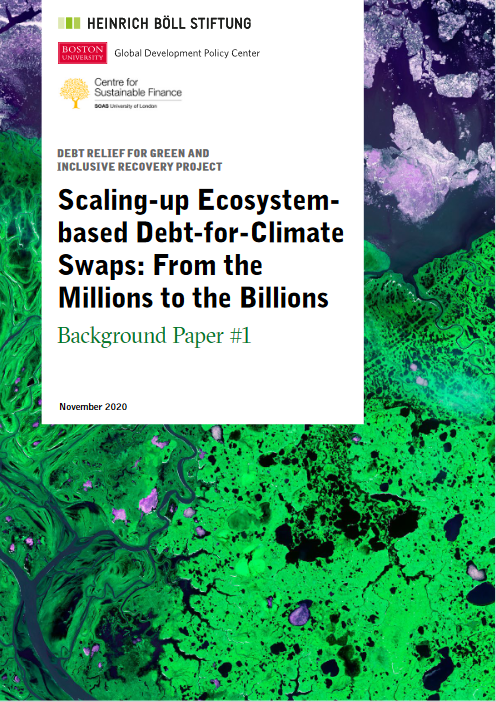
Background Paper #1: Scaling-up Ecosystem-based Debt-for-Climate Swaps: From the Millions to the Billions
This paper discusses how debt-for-climate swaps can be useful “triple-win” instruments to address the climate crisis by ensuring the protection of valuable terrestrial and marine ecosystems, while also contributing to debt sustainability.
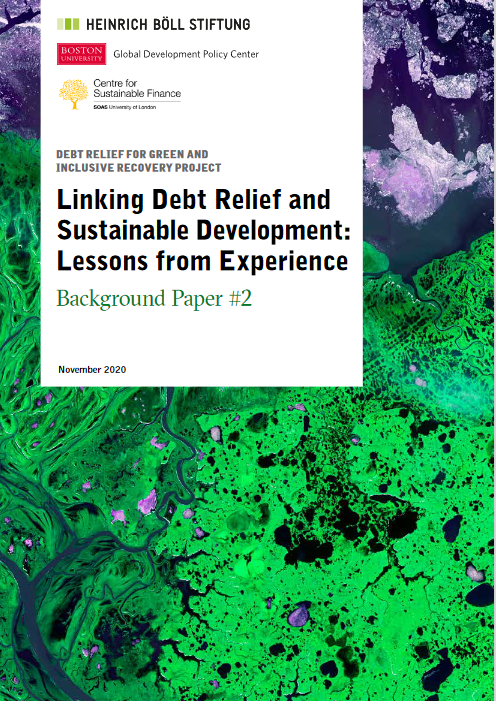
Background Paper #2: Linking Debt Relief and Sustainable Development: Lessons from Experience
This paper examines the experience with debt-for-development swaps and major debt relief processes in order to draw some lessons that could help shape a debt-for-climate initiative (DCI).
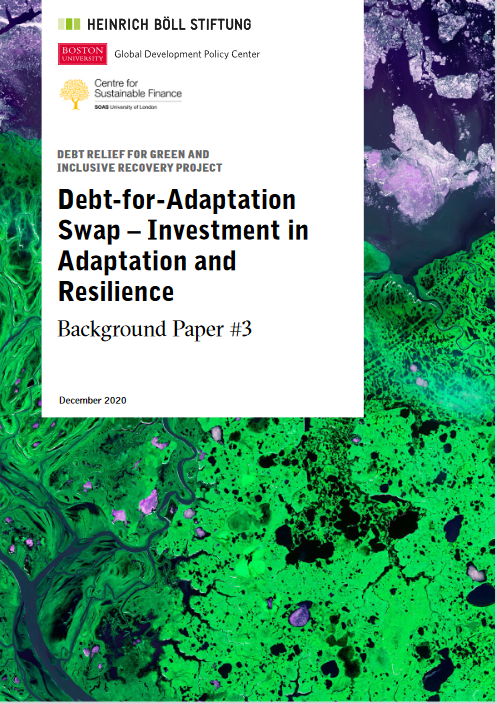
Background Paper #3: Debt-for-Adaptation Swap – Investment in Adaptation and Resilience
In the near term, adequate adaptation finance for climate-proofing development and enhancing the resilience of societies is not likely to be available. Therefore, this policy brief brings in the debt-for-adaptation swap as an alternative source that should be included in the global policy discourse.
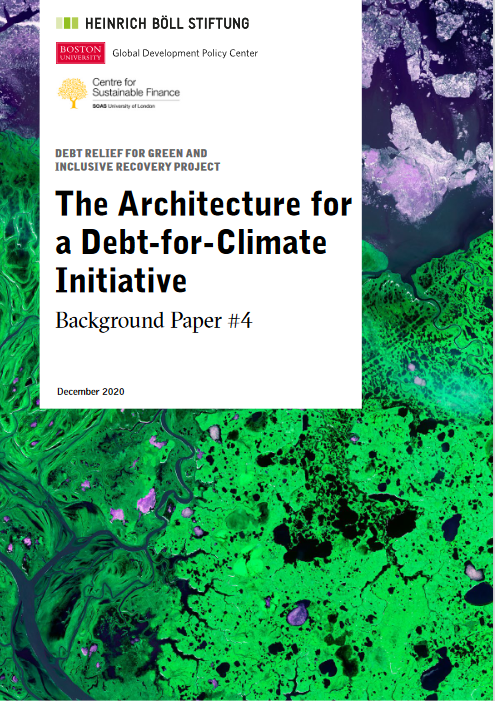
Background Paper #4: The Architecture for a Debt-for-Climate Initiative
This paper offers a menu of options to create an architecture for a Debt-for-Climate Initiative (DCI). The DCI aims to bring together all types of creditors to achieve debt sustainability, create fiscal space, and be more climate-effective.
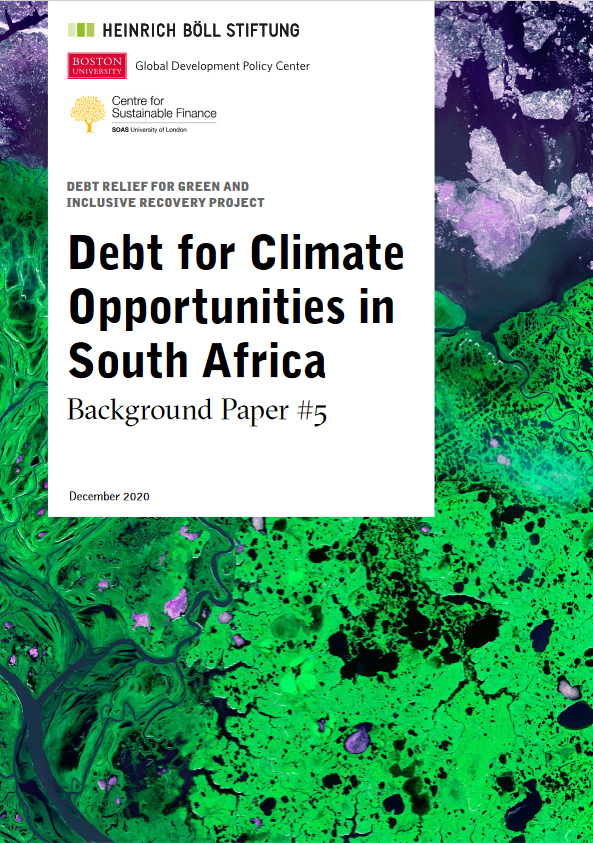
Background Paper #5: Debt for Climate Opportunities in South Africa
The pace of energy transitions in middle-income countries such as China, India, and Indonesia will determine whether the world meets its Paris Agreement target of limiting temperature rise to “well below two degrees”. This South African case suggests that Debt-for-Climate Initiatives (DCIs) are likely to play a valuable role in enabling and supporting a just transition by contributing towards overcoming political, institutional, and other barriers in such countries.
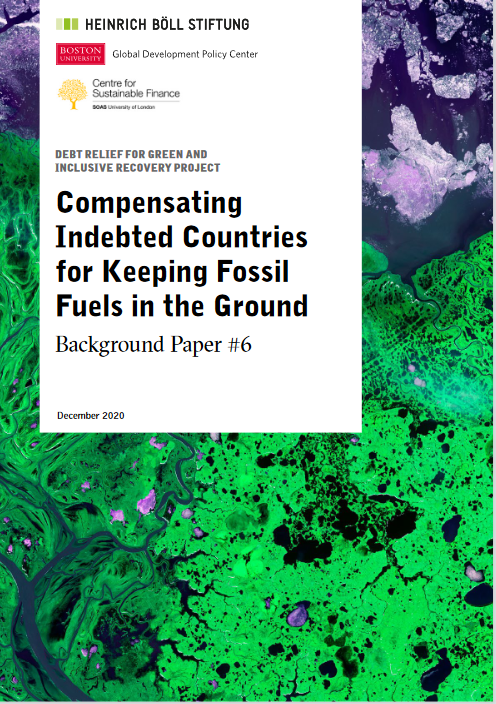
Background Paper #6: Compensating
Indebted Countries for Keeping Fossil
Fuels in the Ground
Pressing needs of servicing debt and the prevailing mindset of associating
fossil fuels with wealth may still push new producer countries into subsidising fossil fuel development and entering into risky contracts with oil and gas firms. This paper proposes an innovative solution to this dilemma: a contract between international creditors and the government to leave certain hitherto undeveloped and unassigned oil and gas reserves in the ground for an initial 10-year period.
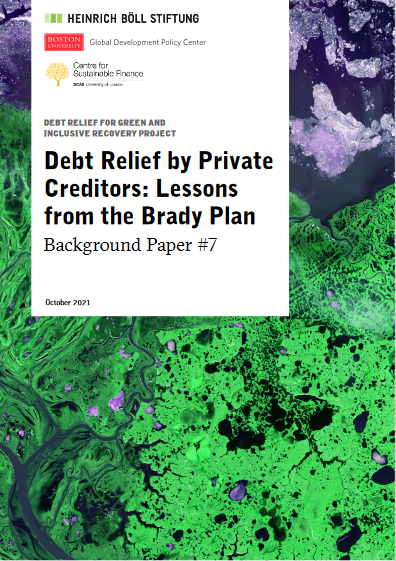
Debt Relief by Private Creditors: Lessons
from the Brady Plan
This paper reviews the main features of and experiences with the Brady Plan, which in 1989 laid the foundation for the restructuring of the sovereign debt of mainly Latin American countries. It argues that the combination of credit enhancement for restructured debt, moral suasion, and tax as well as regulatory relief to encourage private creditors to participate in debt restructurings may provide a template for addressing today’s sovereign debt problems.